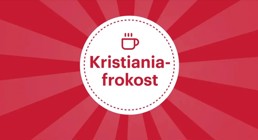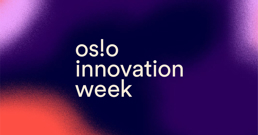Dilemmas from business challenges can spark courage and imagination
-
Sist oppdatert
8. oktober 2025
-
Kategori
A small eco-friendly brand gets an offer from a fast fashion giant. The rewards are huge. So are the risks.
SCIENCE NEWS FROM KRISTIANIA: Business and sustainability
Short summary:
-
Business dilemmas arise when companies try to balance integrity and profit — for example, a sustainable brand receiving an offer from a fast-fashion giant forces a tension between purpose and commercial success.
-
The decision process is as important as the decision itself — managers should align corporate values, stakeholder impacts, and outcomes (even under uncertainty).
-
Addressing such dilemmas requires imagination, critical thinking and courage to challenge norms — but doing so can yield ethical consistency, reputational gains and new avenues for innovation.
(This summary was created by AI and reviewed by the editors).
Good News London is a small but fast-growing footwear brand committed to sustainability. Its shoes are made from recycled natural rubber outsoles, bean oil insoles and organic cotton uppers.
All the components are sourced to be safe and sustainable, and the packaging is recyclable. Part of the purpose of the company is to raise awareness as to the damage that modern footwear manufacturing causes to people and the planet – and challenge fast fashion practices.
Now the founder faces a tough decision: H&M wants his company to produce a trainer collection with a smaller environmental footprint. This would be good in terms of building the brand and getting the sustainability message across to a broader audience.
But H&M epitomizes the world of fast fashion. What should he do?
This is a classic dilemma for businesses that want to maintain the integrity of their beliefs while being commercially successful. If Good News were only interested in profits, the answer would be simple: make the deal.
What is interesting here is not only which path is chosen, but the process by which the decision is made
However, Good News has a clear purpose and values that make the judgement more complex. They need to take into account how to balance the needs of different stakeholders (including the planet) and how to weigh short-term gains versus longer-term impact.
Critical thinking can spark courage and imagination
When executives and students discuss this dilemma and provide their recommendations, they are also swayed by perceptions of H&M. Some recall critical media comments on the brand about the dumping and burning of unsold clothes, while others note that the company seems to be more committed to sustainability than before.

How can working life benefit from student practice?
The Good News dilemma is one of a portfolio of real-world business challenges that also includes fish farming in Norway, steel production in the Netherlands and tourism in the Maldives.
They are written to encourage critical thinking and to persuade participants that there are often economic and moral costs involved in making business decisions.

Impact with Integrity: Balancing Profit and Purpose in a Changing World
Is balancing profit and ethics just wishful thinking?
While Universities might try to teach students to think critically, the challenge is that organizations have cultures and practices that encourage conformity. It takes imagination and courage to question and subvert the accepted way of doing things. As former President, John F Kennedy said in an address to Yale University in 1962, ‘too often we enjoy the comfort of opinion, without the discomfort of thought’.
Even lauded businesses, such as Patagonia, acknowledge they have blind spots on certain issues and have to work to be self-critical. This helps Patagonia to evaluate options against their purpose, ‘we’re in business to save our home planet’ and to drive the search for innovative solutions.
In an influential 2011 Harvard Business Review article, Michael Porter and Mark Kramer put forward the idea that businesses can create economic value alongside social value. Sometimes this win-win approach is realisable, but as the philosopher, Brian Berkey notes this is ‘a kind of wishful thinking’, because it overlooks the conflicts that easily emerge between ethics and profits.
In our research we too have found that managers – especially those in publicly quoted businesses – struggle to balance these competing demands. Often stakeholders with weak or passive power (farmers, local communities, nature) are sacrificed to those with strong power (investors).
Managers must try to align intentions with outcomes
In tackling the dilemmas that emerge in business life, managers need to look inwards and outwards. They need to draw on a company’s beliefs, in the form of its purpose and values. Then they need to consider the impacts on all relevant stakeholders – including the passive ones – both in the short- and long-term. Sometimes more weight will need to be given to the needs of certain stakeholders, but then a company should consider how it can ameliorate the consequences of its choice.
The problem here is that in trying to align intentions with outcomes, there is considerable uncertainty and also the difficulty of effective measurement. However, for those businesses that manage to act with moral integrity, there are reputational benefits internally and externally, and the potential to influence others.
So, what should the founder of Good News London do? The point of a dilemma is that the choice between options is difficult and that neither option is unambiguously right. What is interesting here is not only which path is chosen, but the process by which the decision is made.
References:
Berkey, B. (2022). Facing up to conflicts between ethics and profits: Against wishful thinking. In In good conscience: Do the right thing while building a profitable business (pp. 43–47). Ind N., Iglesias O. Palgrave Macmillan.
Porter, M. E., & Kramer, M. R. (2011, January–February). Creating shared value. Harvard Business Review, 89(1–2), 62–77.
Tjandra, N., Feri A., Ind., Iglesias O., Backhaus C., & Seegebarth B. (2025) The core attributes of conscientious brands: A stakeholder perspective. Journal of Business Research. 201. doi.org/10.1016/j.jbusres.2025.115744
Text: Nicholas Ind, professor, School of Economics, Innovation and Technology, Kristiania University of Applied Sciences.
We love hearing from you!
Send your comments and questions regarding this article by e-mail to kunnskap@kristiania.no.
Siste nytt fra Kunnskap Kristiania
 Kunnskap KristianiaLes mer
Kunnskap KristianiaLes merVerdien av stillhet
Vi lever i en tid der hvert øyeblikk kan fylles – av lyd, informasjon, samtaler, varsler og tanker. Kunnskap KristianiaLes mer
Kunnskap KristianiaLes merFrykten for å gå glipp av noe skaper uro – og mer scrolling
Problemet med sosiale medier er ikke at de fører til sosial isolasjon. Men FOMO-syndromet skaper stress. Kunnskap KristianiaLes mer
Kunnskap KristianiaLes merNår Tinder møter hverdagslogistikken
Du syntes det var vanskelig å få datingapper til å fungere? Prøv å få det til med hverdagslogistikken til en aleneforelder. Kunnskap KristianiaLes mer
Kunnskap KristianiaLes merHva om du kunne «gå opp i level» underveis i prøven?
I dataspill får du en ny utfordring i det øyeblikket du er klar for den.

Meld deg på vårt nyhetsbrev



